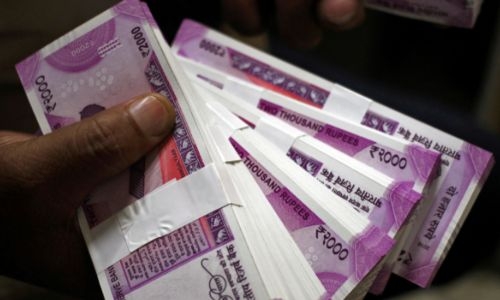The Curious Case of Money
BY ANUSHKA GOGIA
Growing up with a house full of bankers and financial consultants, our family dinners - much to my dismay - were less ‘pass the salt’ and more “let’s delve into the recent changes in interest rates”. Each meal resembled a high energy fueled debate, with my father and brother as formidable opponents, each passionately presenting their viewpoints. Meanwhile, my mum and I exchanged knowing smiles of ‘here we go again’ as we turned our undivided attention to the real task at hand - devouring the culinary delights before us.
Each bite was a delicious escape from the intellectual storm brewing across the table - ridding the incessant battle we witnessed every night at the table. But then, like a knight in shining armour (or maybe just a really well-written textbook), GCSE Economics came to my rescue. Soon these heated debates became more than just background noise that I tried to tune out - it became a new language. One I was adamant to learn. Much to the dismay of my mother, I started paying more attention to the dinner pitching in while she was left alone to focus on the food.
Soon, I started questioning everything. Whether it was the clinking of coins in my pocket or the swipe of the credit card at the till, the payments made online along with the chatter of cryptocurrency on news bulletins. - these everyday realities started to instil curiosity.
They became puzzles demanding answers- which one of these is “money”? Money: what was once a simple tool – a source of happiness for my mother who is a firm believer of treating herself to weekend retail therapy and a means to buy that coveted candy bar I was craving for myself – morphed into a complex enigma.
Where did it come from? Who printed it? How did paper money become so widely accepted? How do people trust that money has value? These questions ran rampant in my mind like an unbridled storm - leading me down a rabbit hole which urged me to explore the topic further and delve into the intricacies of the concept of “money” in economic thinking. Money is defined as a medium of exchange in the form of coins and banknotes.
However, over time, the exact definition of money has evolved and been distorted by technological advancements wherein certain elements such as the tangibility and the intrinsic value of the money have been altered over the passage of time.
Initially, money was created to address the inherent impracticalities relating to the bartering process which was riddled with issues like divisibility, a measure of value, and other monetary aspects. Bartering was further complicated by the necessity of achieving a double coincidence of wants, making transactions cumbersome and inefficient.
Therefore, money in terms of coins and banknotes was created with the emergence of banks and financial institutions.
The establishment of these tangible entities of fiat currency enabled an easier medium of exchange which significantly enhanced transactional efficiency wherein the introduction of a universally accepted unit of account provided a standardised metric to set prices and determine the value of commodities.
Furthermore, unlike non-durable goods and perishable commodities, money possessed durability as well as stability - acting as a store of value and a standard of deferred payment. Such improvements in the money system expedited monetary transactions, fostering efficiency as well as transcending the countless limitations associated with the bartering process.
However, over time, the very essence of money underwent a metamorphosis driven by technological advancements.
The rise of digital currencies like Bitcoin and Ethereum challenged the status quo wherein their decentralised structure enables individuals to conduct peer-to-peer transactions, bypassing traditional financial institutions like banks.
This disrupts the existing power dynamic, potentially reduces transaction fees, and raises questions about the future role of central banks in managing money supply. In conclusion, the concept of money in economic thinking has continuously adapted throughout history.
From commodity-backed currencies to the rise of digital assets, the core function of facilitating exchange remains, but the form and underlying mechanisms have transformed.
As technology continues to evolve, we can expect further challenges and opportunities that will redefine our understanding and use of money.
Speaking about evolving, as has our dinner table which has developed from a battleground to a whole economic coliseum thanks to a newer and worthier opponent (in my humble opinion), dethroning my brother’s title (whilst he is not there to defend it) and leaving only one bewildered audience member.
Sorry about that mum - maybe you should pick up an Economics textbook too!
(The views and opinions expressed in this article are those of the author and do not necessarily reflect the official policy or position of the Daily Tribune)
ANUSHKA GOGIA
Related Posts


